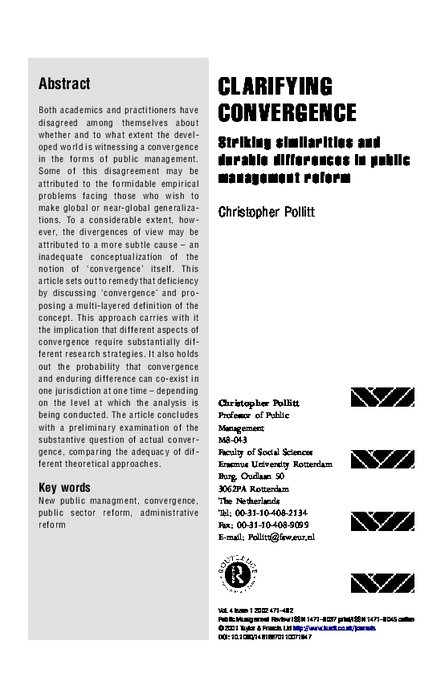
Both academics and practitioners have disagreed among themselves about whether and to what extent the developed world is witnessing a convergence in the forms of public management. Some of this disagreement may be attributed to the formidable empirical problems facing those who wish to make global or near-global generalizations. To a considerable extent, however, the divergences of view may be attributed to a more subtle cause – an inadequate conceptualization of the notion of ‘convergence’ itself. This article sets out to remedy that deficiency by discuss ing ‘conve rgence’ and proposing a multi-layered definition of the concept. This approach carries with it the implication that differentaspects of convergence require subs tantially different research strategies . It also holds out the probability that conve rgence and enduring difference can co-exist in one jurisdiction at one time – depending on the level at which the analysis is being conducted. The article concludes with a preliminary examination of the substantive question of actual convergence, comparing the adequacy of different theoretical approaches